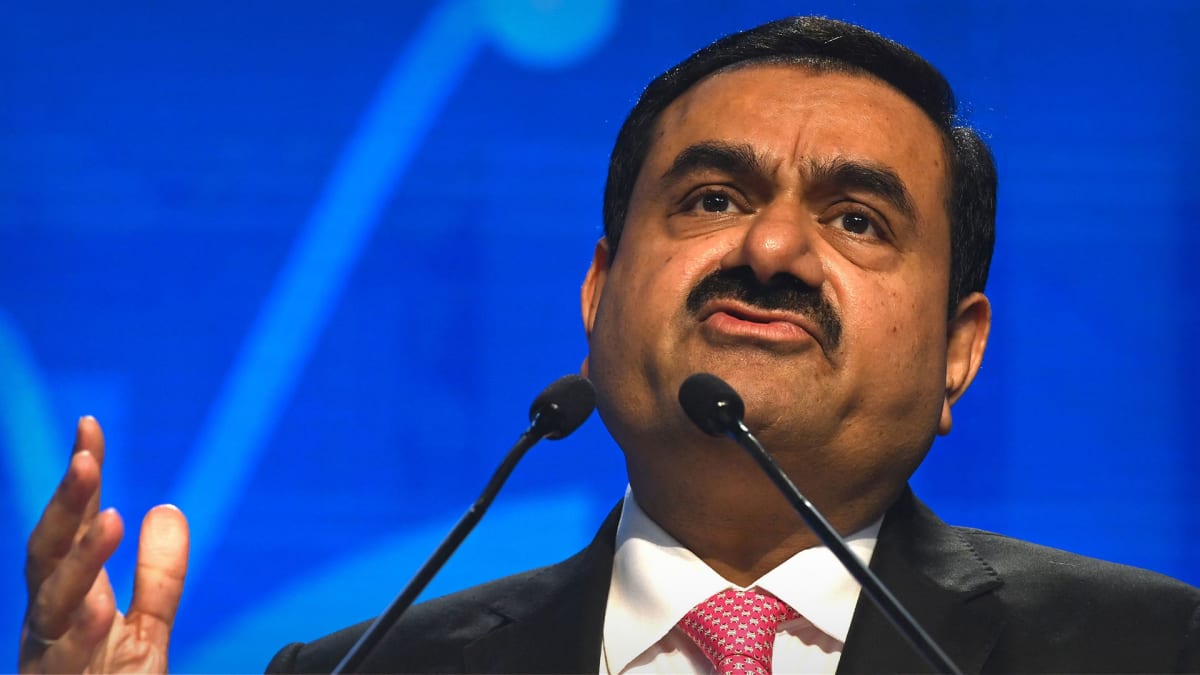
Gautam Adani exploded onto the international stage last year.
The Indian billionaire, prominent in his country, entered international circles by becoming, for a few months, the second richest man in the world.
He'd surpassed Warren Buffett, CEO of Berkshire Hathaway (BRK.A) (BRK.B), Bill Gates, co-founder of Microsoft, Bernard Arnault, CEO of luxury-goods giant LVMH (LVMUY) , and Jeff Bezos, executive chairman of Amazon (AMZN). Only the fortune of Tesla's (TSLA) Elon Musk held him off the top spot.
Adani then fell in the rankings but remains the fourth richest person, with a fortune valued at $119 billion as of Jan. 24, according to the Bloomberg Billionaires Index. That's behind only Arnault with an estimated $190 billion, Musk ($145 billion) and Bezos ($120 billion).
His fortune had increased by $40 billion in 2022, when most billionaires had seen their fortunes decline.
The rise of Adani began during the covid-19 pandemic. In March 2020, his wealth was valued over $6 billion. Since then, his fortune has increased by a factor of almost 25.
From a Modest Start Grew an Empire
Adani was born in 1962 in Ahmedabad in western India. He comes from a modest family of seven children whose father was a small textile merchant. A self-made executive, Adani started working at age 16 at the diamond dealer Mahendra Brothers, where he was responsible for sorting precious stones.
In 1988 he founded a commodity-trading firm that would become the Adani conglomerate. He has grown the group by acquiring companies with debt.
Adani Group has become one of the most valuable companies in India. The firm holds mines, ports and power plants. It owns a dozen commercial ports and is present in coal, electricity and renewable energy. It also has diversified into airports, data centers and defense.
The company also recently entered the cement sector by buying assets of cement manufacturer Holcim (HCMLY) in India and is also looking to set up an aluminum factory.
Adani Enterprises is the flagship of the billionaire's empire.
Last August, the CreditSights subsidiary of Fitch Ratings warned that the conglomerate was "deeply overleveraged" and may "in the worst-case scenario" spiral into a debt trap.
But two weeks later the credit-rating firm said it discovered that it had made "calculation errors" in two of Adani Group's companies. It corrected its report and removed the words "deeply overleveraged."
"CreditSights' views have not changed from its original report and we still maintain that the group's leverage is elevated," CreditSights concluded.
This year, the Indian tycoon has decided to increase its international exposure. The billionaire is about to sell new shares of Adani Enterprises at a discount to attract retail investors. The goal is to attract the general public and to allay doubts among foreign investors.
But this effort just took a big hit.
The New York investment firm Hindenburg Research has just announced that it has shorted stocks of the Andani conglomerate through U.S.-traded bonds and non-Indian-traded derivative instruments.
This means that Hindenburg Research, a well-known short-seller, is betting on a short-term drop in the prices of these equities.
Hindenburg Brought Down Nikola
Hindenburg Research is credited with bringing down Trevor Milton, the founder of electric-truck maker Nikola (NKLA). The firm had accused Milton of having built Nikola on lies.
Now it has turned its attention to Adani Group.
"We have uncovered evidence of brazen accounting fraud, stock manipulation and money laundering at Adani, taking place over the course of decades," Hindenburg wrote in a report.
"Adani has pulled off this gargantuan feat with the help of enablers in government and a cottage industry of international companies that facilitate these activities."
The report describes a galaxy of shell entities based in tax havens -- the Caribbean, Mauritius and the United Arab Emirates -- controlled by the Adani family.
"The Adani Group has previously been the focus of 4 major government fraud investigations which have alleged money laundering, theft of taxpayer funds and corruption, totaling an estimated U.S. $17 billion," Hindenburg said.
"Adani family members allegedly cooperated to create offshore shell entities in tax-haven jurisdictions like Mauritius, the UAE, and Caribbean Islands, generating forged import/export documentation in an apparent effort to generate fake or illegitimate turnover and to siphon money from the listed companies."
The response from the conglomerate was not long in coming.
"The report is a malicious combination of selective misinformation and stale, baseless and discredited allegations that have been tested and rejected by India’s highest courts," commented Jugeshinder Singh, Adani Group's chief financial officer, in a statement.
"The timing of the report’s publication clearly betrays a brazen, mala fide intention to undermine the Adani Group’s reputation with the principal objective of damaging the upcoming Follow-on Public Offering from Adani Enterprises, the biggest FPO ever in India."
Hindenburg Research seems to have anticipated this reaction since the short-seller warns that the report "relates solely to the valuation of securities traded outside of India."
It added that the report "does not constitute a recommendation on securities. This report represents our opinion and investigative commentary, and we encourage every reader to do their own due diligence."







